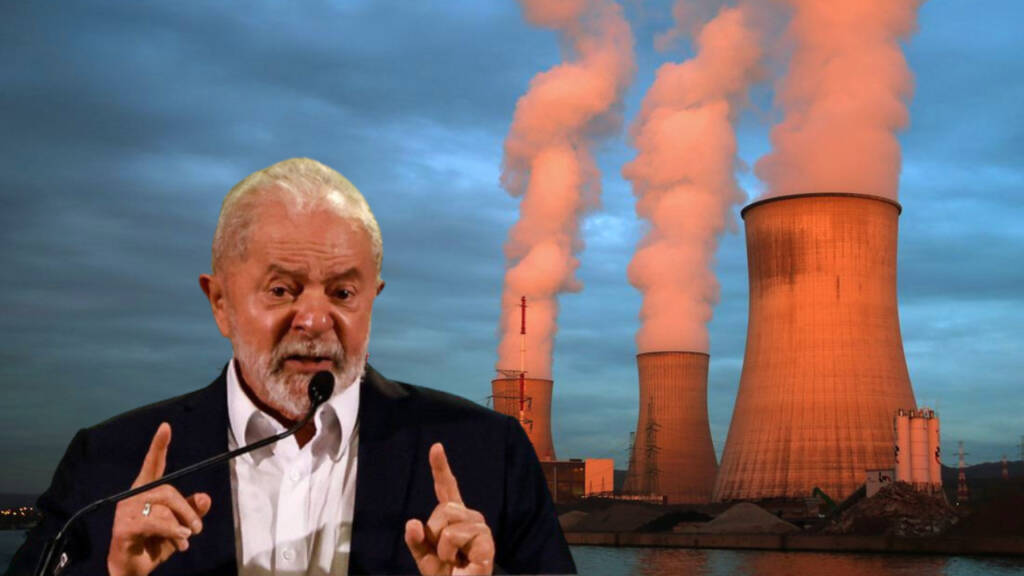We are all familiar with the Chernobyl disaster. But what if I tell you that a similar incident was about to take place in Brazil as well. The incident could have life-threatening consequences like the Chernobyl event. Stay tuned and watch the video.
Electronuclear, a state-owned company in charge of managing nuclear power plants in Brazil, reportedly failed to inform regulatory agencies about a radioactive material leak that occurred in September 2022 at the Cove 1 nuclear power plant. The incident resulted in the contamination of the water in Itaorna Bay in Angra dos Reis. According to documents obtained, the company informed the National Nuclear Energy Commission (Cnen) and the Brazilian Institute of the Environment (IBAMA) 21 days after the incident.
Electronuclear stated that a small volume of the harmful material was involuntarily released into the rainwater system, but that there was no need to comply with mandatory notification procedures in the event of an accident.
Despite this, the body responsible for supervising and controlling the nuclear program in Brazil, the Cnen, as well as the Federal Public Ministry and Ibama, pointed out that there was a delay in informing about the leak, which ended up generating doubts about the information that was provided by the company. For this reason, the competent bodies would like to carry out a deeper investigation into what happened, with the intention of verifying the dimensions of this leak and also the possible damage caused to human health and the environment.
Recorded on September 16, 2022, the release of this radioactive material into the sea only came to the attention of the respective responsible agents almost two weeks later, on the 29th of the same month. An anonymous complaint was made with details and sent to the State Institute of the Environment — INEA, which it ended up also sending to Cnen and IBAMA.
Read more: A David and Goliath story between Lula da Silva and Bolsonaro loyalists
At first, Electronuclear the state-owned company informed the authorities that the leaked radioactive material had been contained that had not really leaked from the facilities, however, this version ended up changing later, and Electronuclear admitted that a small part actually reached the sea. On March 21, a public civil action was filed in Federal Justice in Angra dos Reis against the state-owned Eletronuclear, being accused of acting with irresponsibility and lack of transparency.
Fortunately, the Brazilian authorities have taken cognisance of the unscrupulous actions of the Electronuclear company and have started an investigation. History has been a witness to how late actions or coverups on the part of the government can lead to a huge catastrophe.
Talk about the Chernobyl episode. The government’s response to the Chernobyl disaster was widely criticized for exacerbating the crisis. The Soviet Union initially attempted to downplay the severity of the accident and delay the evacuation of nearby residents. This led to a significant delay in responding to the disaster, which allowed the radioactive contamination to spread over a larger area.
In addition, the Soviet government’s lack of transparency and openness about the extent of the disaster made it difficult for other countries to provide assistance and for scientists to understand the full impact of the disaster. This further complicated efforts to contain the spread of radioactive materials and mitigate the health effects of the disaster.
Make no mistake, the release of radioactive material had significant and long-lasting impacts on the health, environment, and economy of the affected areas. The danger of radioactive material lies in its ability to cause damage to cells, leading to radiation sickness and an increased risk of cancer and other illnesses. Additionally, the long half-life of many radioactive materials means that the contamination can persist in the environment for years or even decades, posing ongoing risks to human health and the ecosystem.
Read more: South America joins the de-dollarisation bandwagon with a big announcement
One example of this is the atomic bombings of Hiroshima and Nagasaki in Japan during World War II. The detonation of the atomic bombs released a massive amount of radioactive material, causing immediate deaths and injuries from the blast and thermal radiation. In the aftermath, the radioactive fallout contaminated the surrounding environment and caused long-term health effects, including cancer and other radiation-related illnesses, for those who were exposed.
Thus, the Brazilian company, activities of Electronuclear, if left unchecked, could have caused massive harm. This episode is a testament to the fact that governments have a responsibility to regulate the nefarious activities of nuclear companies to protect the public interest and ensure that businesses operate in a responsible and ethical manner.
https://www.youtube.com/watch?v=ZLp_pmvyjyM
